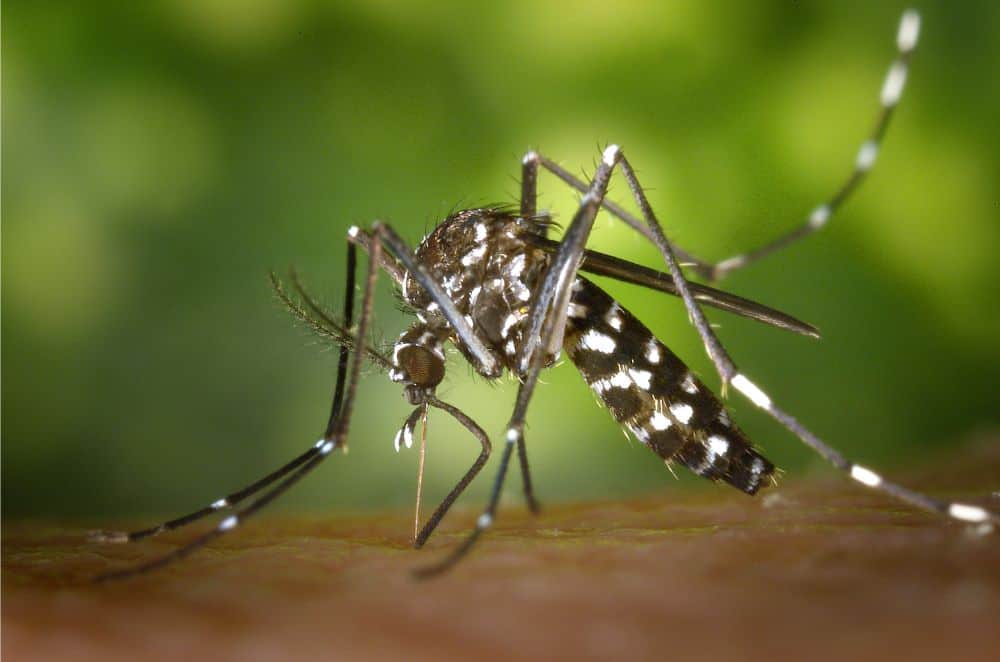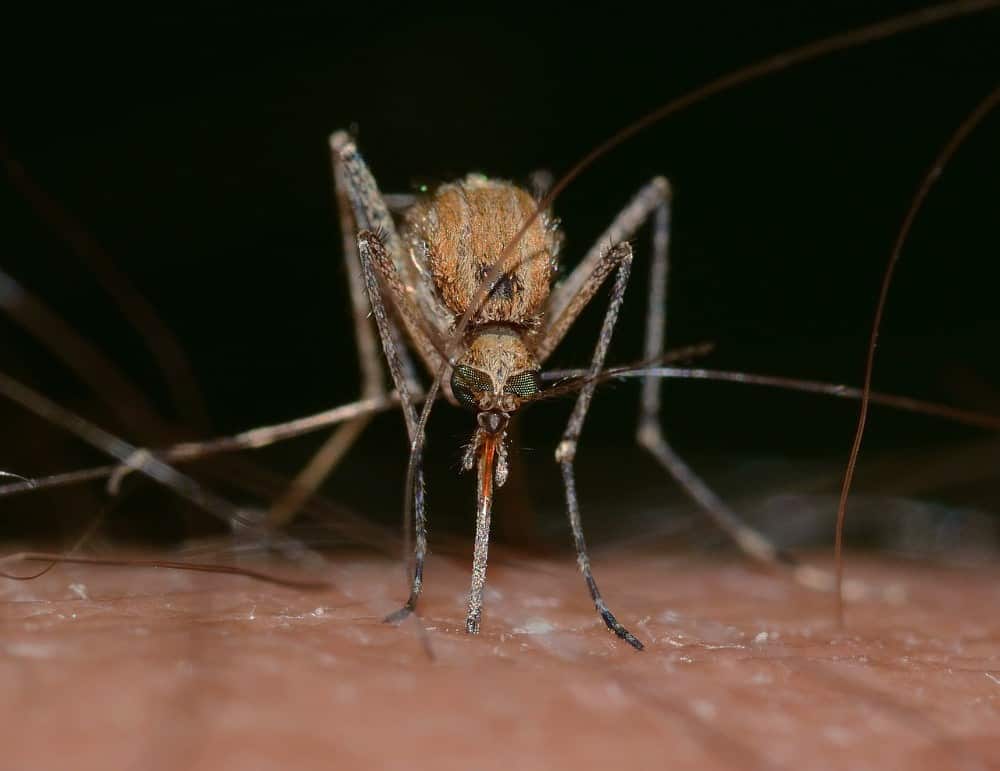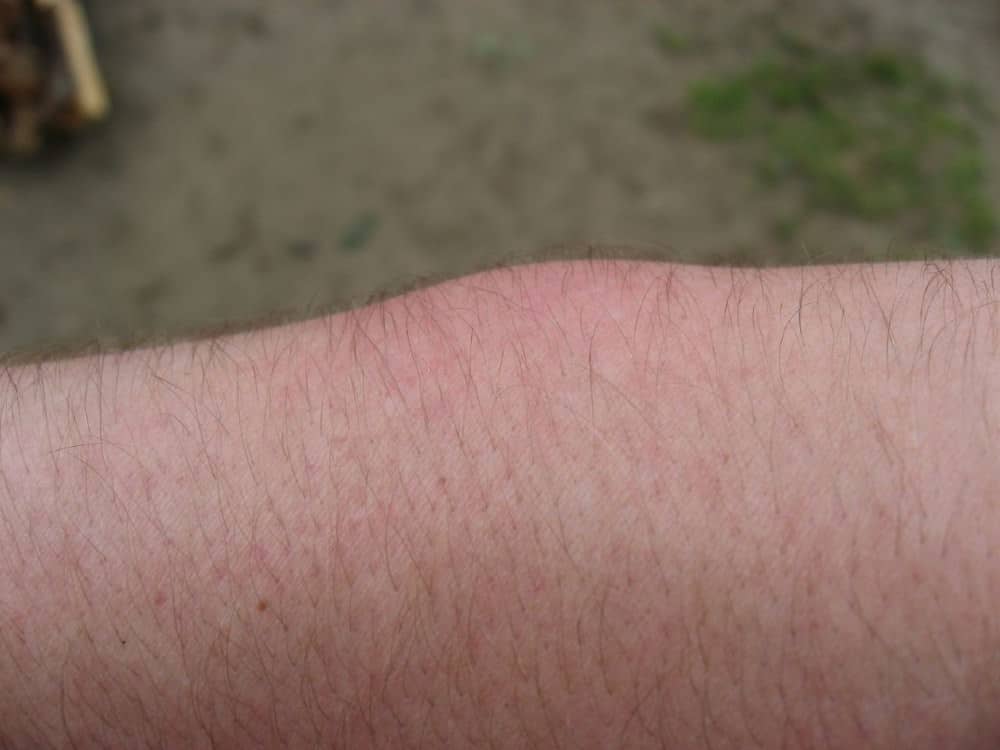Can Mosquitoes Transmit AIDS or HIV?
Many people believe that mosquitoes can transmit HIV and AIDS. This is often because they are able to transmit so many other diseases such as the Zika virus and malaria.
AIDS and HIV can be fatal, and on average kills around one million people worldwide per year. However, the number of deaths has fallen recently, and HIV and AIDS are no longer in the top ten causes of death.
There have been many studies to find out if mosquitoes have a role in transmitting these diseases. This article looks at some of the findings to give you the answer you’re looking for.
Can Mosquitoes Carry HIV & AIDS?
There are over 3,000 species of mosquitoes throughout the world. While some are considered dangerous, most are just annoying pests. Not all mosquitoes transmit disease.
We all know that mosquitoes bite us humans and suck on our blood. Their bites can cause various types of allergic reactions. Sometimes the reactions are severe. This can result in secondary infections of the wound sites.
It’s also common knowledge that mosquitoes are responsible for spreading many diseases, such as:
- Dengue
- Zika virus
- Yellow fever
- Malaria
- Encephalitis
- West Nile virus
- Chikungunya
- La Crosse
- Trivittatus
The list above is comprised of all potentially deadly viruses which mosquitoes are vectors for. Different geographical areas experience different mosquito-borne illnesses. This all depends on the climate and type of mosquito.
These viruses and diseases are responsible for incapacitating millions of people daily. They continue to result in many deaths each year. Diseases carried and transmitted by mosquitoes are caused by tiny parasites or viruses. The mosquitoes pick these up when they bite humans, animals, and birds.
Mosquitoes become a carrier when they bite an infected person or animal. The diseases they pick up do not harm the mosquito, but can replicate inside the gut of the mosquito.

When the mosquito bites its next victim, it could transfer the virus. This happens when the mosquito pierces the skin with its proboscis. It then injects saliva and other substances into the victim.
Even when bitten by an infected mosquito, it may not result in you becoming ill. Some people bitten by an infected mosquito may show no symptoms at all. Some have the belief that the more severe your reaction to the bite, the higher your risk of infection is. Much research into this area continues, to try and find out the facts.
HIV differs from these other viruses. To replicate, HIV/AIDS need to bind to T cells, or T-lymphocytes. Both humans and animals have these cells, but mosquitoes and most other insects do not.
When the mosquitoes consume the infected blood, it will enter their gut. Once there, HIV/AIDS cannot replicate, as mosquitoes have no T cells which they can bind to.
As the HIV/AIDS virus cannot replicate, it’s unable to migrate to the salivary glands. This means it is not present in the saliva of the mosquito, and does not enter the body of its next blood meal.
The particles of HIV/AIDS are digested and broken down, along with their blood meal. The process of digestion results in destroying the virus. This means that, even if a mosquito were to bite an infected person, it will not be carrying the disease.
Can Mosquitoes Successfully Transmit HIV/AIDS?
HIV and AIDS are both blood-borne viruses. They need blood or other bodily fluids for infection to occur, such as:
- Semen
- Pre-seminal fluid
- Rectal fluid
- Vaginal fluid
This means they are generally transmitted through sexual intercourse or acts. It is also possible for a mother infected with HIV/AIDS to pass it on to her baby through breast milk.
There are certain conditions which need to be satisfied for transmission to occur. Without these, it’s unlikely that infection of HIV/AIDS will take place.
To transmit HIV/AIDS:
- HIV/AIDS requires a bodily fluid to grow (it cannot survive in feces, sweat, or saliva)
- There needs to be a route for the infection to enter, such as blood-to-blood, a mucous membrane, or damaged tissue
- The viral load needs to be enough to cause infection
Another source of transmission is the sharing of needles and syringes. This is the reason that many people think mosquitoes can transmit HIV.
The same as a person injecting a needle into their skin, so is the proboscis injected when the mosquito bites. There are differences in these processes, although both methods pierce the skin.
When a needle is used by an infected person, blood enters the needle and syringe. After they have used the needle it could still contain some of the infected blood.
If another person uses the needle without sterilizing it, they will inject themselves with the infected blood. HIV can thrive in a used needle for round 42 days. This depends on temperature and other environmental factors.
A mosquito does not inject any blood into a person, just saliva and anticoagulant. As the HIV/AIDS virus cannot replicate in a mosquito, there is no way for it to be present in the saliva.

Some worry that the virus may live for a short time before digestion destroys it. For instance, if an infected person sat beside you and got bitten then the insect moved to bite you. This would not be enough time for the gut of the mosquito to digest the virus and destroy it.
The reality of this is that the mosquito would only carry such a small amount of the virus. So even if a mosquito could transmit the virus, the amount would not be enough to become infected. The chances would be almost impossible.
Even swallowing an entire mosquito that had just bitten someone infected with HIV/AIDS, the risk is very low. It would take more than a million to result in mosquitoes transmitting HIV/AIDS.
Summary
While mosquitoes transmit many diseases and viruses, HIV and AIDS are not included on that list. There have been many extensive studies that have taken place in a number of countries around the world. These studies have reached the same conclusion.
Mosquitoes cannot carry, nor are they able to transmit, HIV or AIDS. Even in countries where the prevalence of the virus is high, mosquitoes are not responsible for their transmission.



